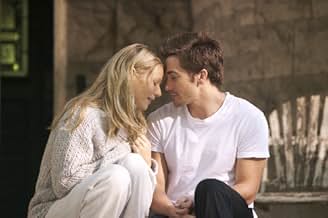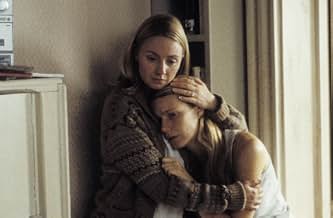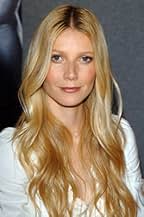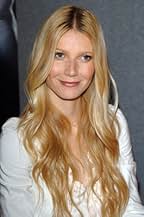La hija de un matemático brillante, pero con problemas mentales, recientemente fallecido, trata de enfrentarse a su mayor temor: heredar la locura, o quizá la genialidad de su padre.La hija de un matemático brillante, pero con problemas mentales, recientemente fallecido, trata de enfrentarse a su mayor temor: heredar la locura, o quizá la genialidad de su padre.La hija de un matemático brillante, pero con problemas mentales, recientemente fallecido, trata de enfrentarse a su mayor temor: heredar la locura, o quizá la genialidad de su padre.
- Dirección
- Guionistas
- Elenco
- Premios
- 4 premios ganados y 6 nominaciones en total
- Limo Driver
- (as Tobiacz Daszkiewicz)
- University Friend
- (as C Gerod Harris)
- American Student
- (sin créditos)
- Wake Guest
- (sin créditos)
Opiniones destacadas
I didn't see the David Auburn play on which the movie is based, and maybe many of the film's detractors have: screen adaptations of favorite plays often seem to dilute them to the detriment of the story. But if this movie is worse than its stage counterpart, it must have made one damn fine play.
The acting in this film is its major attribute, and director John Madden is wise enough to realize the talent of his ensemble and stand out of their way. He plays a bit with chronology and lets the pieces of his story click into place much like a math puzzle; I don't know whether or not this is original to the film or borrowed from the play, but either way it works well. But mostly, he lets the actors strut their stuff, and the four principals make the most of meaty roles.
Most of the acclaim has been falling, and rightly so, to Gwyneth Paltrow, who gives a full-bodied, textured and powerful performance as Catherine, who has inherited her genius at math from her father and is deathly afraid that she may have inherited his madness as well. I don't know that Paltrow has yet had a role as substantial as this one, and she flexes her acting chops in a way I have not seen her do outside of her underrated performance in "Sylvia." Hope Davis matches her scene for scene as the astringent older sister; it's refreshing to see Davis break away from the mousy, mealy persona she so frequently adopts and play this crisp, overwhelming character. The male actors have less to do overall, but the roles are perfectly cast. Jake Gyllenhaal is ripe for stardom, and this may be the year that brings it. Anthony Hopkins has been dismissed as hammy here, but I think he does an effective job of portraying mental illness, and creates heartbreaking moments that could have been ruined had they been played differently.
"Proof" feels entirely honest about the dynamics of dysfunctional families; you just know David Auburn is writing from personal experience. Like Robert Redford's "Ordinary People," if you have any exposure to similar family dynamics, you know the team that put the film together got everything just right. "Proof" also creates a parallel between mathematics and the messiness of life that makes one re-evaluate the rigidity of what always appears to be an exact science. As one must accept a level of ambiguity in life, one must also be willing to make leaps of faith in mathematics, because nothing can be 100% proved.
I highly recommend this film. It's satisfying on both an intellectual and emotional level. And any movie that can make math exciting to me gets an automatic thumbs up.
Grade: A
The flashbacks cut effectively back and forth and smooth out where each character is coming from.
"Catherine," the daughter of a brilliant mathematician who is somewhat modeled on John Nash's struggles with madness which were portrayed in "A Beautiful Mind," is still the focal point of attention. But with the other characters fleshed out more Gwyneth Paltrow has more to naturalistically react to than the stage actresses (I saw it on Broadway with a mercurial Anne Heche). Paltrow brings unexpected fragility to the role and makes her sarcastic accusations to her sister come out of personal pain and not just spitefulness. You really see that she is emotionally ravaged from putting her life and mind on hold for a father with a very strong personality.
Anthony Hopkins is unusually paternal as the father and you understand her attractions and fear of him, as well as why the sister had to flee how insecure she felt there, as Hope Davis manages to breathe some life into a strident character. We see very clearly the demands of being a caregiver to a legend. Unlike in "Iris" at the end of careers, we do ache at the sacrifices the young caregiver has made and how this claustrophobic existence has led to her own crippling doubts about her work, her life and her sanity.
Jake Gyllenhaal is the hunkiest, most adorable, rock 'n' rollin' math graduate student since Matt Damon in "Good Will Hunting" and could help increase math enrollments around the country. But as irresistible as he is, and their relationship is literally more believably fleshed out as young people than in the play, we also can share Paltrow's suspicion of him. But we see more of his activities, as the film opens up the play, so we too clearly know before she that he has regained in our credibility as he seeks his proof. I don't mind that the film adds to the romantic aspects and drawn out coda as I thought the play tempted unfulfillingly in that direction and it is a means to help her regain the multiple meanings of proof -- as evidence, as trust, as confidence.
Director John Madden keeps the camera moving actively during long dialog interchanges, reflecting "Catherine"s agitated state of mind. The house and academic setting well establish the atmosphere, particularly when there's more people around, though some of the outdoor shots seemed like filler.
The score is occasionally intrusive, but the concluding voice-over is even more annoying and unnecessary.
This is a compelling portrayal of the mathematical obsession. It's not as flashy or romantic as cinema tries to dress up math sometimes. It is a bit sad. Paltrow does great work following Hopkins. She shows that she's not simply a romantic lead. It's a compelling character study.
She inhabits her character so fully, I was pulled in and so completely entranced the entire time. In fact, certain words or phrases are reused and have an uncanny allusion to when they were previously said. The effect as that you experience and follow the moments, and the thoughts of the characters, even though they are so deeply imbedded within. I credit Gwyneth and the director with making this work so well. I've never experienced such an organic link between phrases separated in time in a movie before. Wow!
This is a movie about how a daughter, her sister, and a grad student deal with the passing of a great mathematician. While there may be similarities with 'A Beautiful Mind' and even 'Good Will Hunting', knowing there are any such links didn't help me with this movie and I think actually does a dis-service. This movie stands on its own. Ignore any such comparisons.
Acting-wise, there were strong performances all around with Anthony Hopkins giving a top-notch performance. Jake Gyllenhaal's was strong, but perhaps not to the level of his rather awesome performance in Brokeback Mountain.
Good things aside, the one thing that irked me about this film, was that given the strong link to mathematics, how unbelievable some of the dialogue was regarding the 'math. While Gwyneth's and Hopkins' characters pulled off a sense of mathematical intelligence, Jake's character hardly said anything mathematically competent and even came across as flustered in expressing himself mathematically leaving me feeling cheated. In my view, this is chiefly the fault of the screenplay but to a lesser extent in the actor's portrayal. Ignore this rather small point, and this movie passes with flying colours. Q.E.D.
Mr. Auburn and Rebecca Miller, a movie director, herself, took the task of adapting "Proof" for the screen. The result, directed by John Madden, opens the play in cinematic terms, no small undertaking in presenting the movie to a wider audience who might not be interested in science, and much less in the advanced math that plays an important role in the proceedings.
If you haven't seen the film, please stop reading here.
Catherine, the 27 year old, at the center of the film, is a woman who has stayed behind to take care of her aging father, a man much esteemed in academic circles, who is suffering from, perhaps, a neurological illness that is killing him slowly. Catherine has, in a way, sacrificed her life in order to see that Robert spends his last days at home instead of at an institution.
The death of the father brings Claire home. This woman, who lives in New York, wants to get rid of everything connected with her father. She even has made plans for Catherine to move from Chicago to be near each other in New York, where things are much better. To complicate things, Harold, the nerdy math student, finds a hidden notebook that might contain a discovery that will revolutionize math. The only problem is the proof might not have been the dead man's own creation.
"Proof" works as a film because of Mr. Madden's direction. We are kept involved in what is going on because we have been won by Catherine, the wounded woman trying to live her life without having to tend to a sick man. Catherine love for math, in a way, makes her realize her place is in the same institution where her father made mathematical discoveries as she will be following his steps.
Gwyneth Paltrow makes an excellent Catherine, a role she had played on the London stage. Ms. Paltrow is a welcome presence in the movie because of the intelligence she projects when working with a good director like John Madden. In fact, it has been a while since we saw this actress in a film.
Hope Davis, another excellent actress, plays Claire, the materialistic sister who has arrived and who wants to transform the frumpy Catherine and mold her to her own taste. Ms. Davis has accustomed us to expect a valuable contribution to any film in which she plays. As Claire, she clearly understand who this character she is portraying really is.
Anthony Hopkins has only a few good moments on the screen. Jake Gyllenhaal's character Harold is not as effective as Ben Shenkman's was on the stage. In fact, Mr. Gyllenhaal, with his dark good looks, seems to be someone who would not be interested in math at all.
"Proof" is an immensely rewarding film thanks to what John Madden's vision.
¿Sabías que…?
- TriviaAccording to the clues of Hal, played by Jake Gyllenhaal, the proof can be the proof of Riemann hypothesis. He says "a very important proof, of a mathematical theorem about prime numbers, which mathematicians are trying to prove; it's historic; you can publish it, give press conferences; all newspapers in the world will talk to the person who have found it." It's one of the Millennium Problems.
- ErroresThe daughter talks about how the father was looking for a message from aliens in the Dewey decimal call numbers on the books from the University of Chicago library. The University of Chicago uses Library of Congress call numbers, which begin with letters, not numbers.
- Citas
Catherine: [Reading Robert's Notebook] "Let X equal the quantity of all quantities of X. Let X equal the cold. It is cold in December. The months of cold equal November through February. There are four months of cold, and four of heat, leaving four months of indeterminate temperature. In February it snows. In March the Lake is a lake of ice. In September the students come back and the bookstores are full. Let X equal the month of full bookstores. The number of books approaches infinity as the number of months of cold approaches four. I will never be as cold now as I will in the future. The future of cold is infinite. The future of heat is the future of cold. The bookstores are infinite and so are never full except in September..."
- ConexionesFeatured in The 63rd Annual Golden Globe Awards 2006 (2006)
- Bandas sonorasEl chocha loca
(2002)
Written by Claudio Quattrocchi
Performed by Loca
Published by Big Tiger Music (BMI)
Courtesy of Lovecat Records
By Arrangement with Ocean Park Music Group
Selecciones populares
- How long is Proof?Con tecnología de Alexa
Detalles
- Fecha de lanzamiento
- País de origen
- Sitio oficial
- Idioma
- También se conoce como
- Proof
- Locaciones de filmación
- Productoras
- Ver más créditos de la compañía en IMDbPro
Taquilla
- Presupuesto
- USD 20,000,000 (estimado)
- Total en EE. UU. y Canadá
- USD 7,535,331
- Fin de semana de estreno en EE. UU. y Canadá
- USD 193,840
- 18 sep 2005
- Total a nivel mundial
- USD 14,189,860
- Tiempo de ejecución1 hora 40 minutos
- Color
- Mezcla de sonido
- Relación de aspecto
- 2.35 : 1
Contribuir a esta página






































